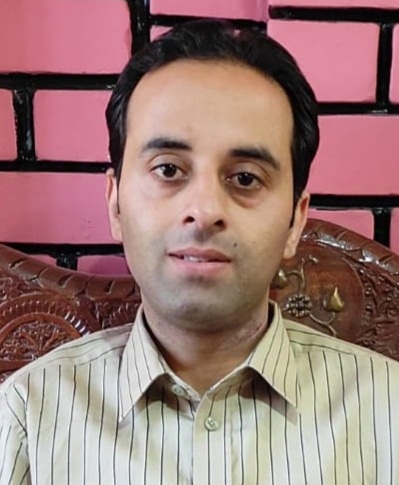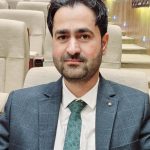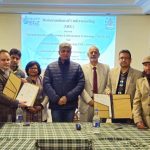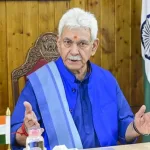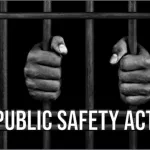In Jammu and Kashmir, children with special needs face unique challenges due to various social, cultural, and infrastructural factors. However, the presence of trained and qualified Rehabilitation Therapists offers renewed hope to both the special children and their families. The region has witnessed an increased emphasis on providing specialized care and holistic therapies to children affected by a range of disabilities, including Autism, Cerebral Palsy (CP), Down syndrome, intellectual disabilities, speech and language disorders, and other neurological and developmental conditions. Specialized Rehabilitation therapy services are gradually being integrated into the healthcare and educational systems, providing essential support that empowers children with special needs to overcome obstacles and reach their full potential. Parents, who often face emotional and logistical challenges, also benefit from the guidance and resources offered by these trained Rehabilitation Therapist professionals.
The availability of professionals trained in Rehabilitation Therapy has played a key role in improving the lives of children with special needs. These professionals use a multidisciplinary approach that includes physiotherapy, occupational therapy, speech therapy, and special education, tailored to each child’s specific requirements. This holistic treatment helps in enhancing mobility, communication skills, cognitive development, education and overall well-being.
A Rehabilitation Therapist is a highly trained and qualified professional who completes a Two-and-a-half-year Diploma in Rehabilitation Therapy (DRT) or a four-year Bachelor’s degree in Rehabilitation Therapy (BRT). The course was first introduced at the Composite Regional Center (CRC) in Bemina, Srinagar, in 2003, with the aim of training Rehabilitation professionals to work with individuals with various disabilities and children with special needs. This initiative was expanded in 2008 to include the Bachelors in Rehabilitation Therapy (BRT) program through Kashmir University to create more Rehabilitation professionals in Jammu and Kashmir. Both the DRT and BRT courses are accredited and monitored by the Rehabilitation Council of India (RCI), New Delhi Ministry of Social Justice and Empowerment GOI.
Throughout the duration of the DRT (2.5 years) and BRT (4 years) programs, students are taught a comprehensive curriculum that includes subjects like Anatomy, Physiology, Psychology, community medicine, Surgery, Physiotherapy, Occupational Therapy, Speech Therapy, Special Education, and other essential areas of study. The aim of Rehabilitation Therapy training programme is to equip Rehabilitation professionals with the skills and knowledge to deliver holistic therapeutic interventions for children with special needs and other differently-abled individuals. This approach not only benefits the children but also provides parents with a streamlined process, eliminating the need to visit multiple therapists. By integrating various therapies into a single, cohesive plan, parents can ensure their child’s development is nurtured in a consistent and effective manner, ultimately improving the overall quality of care and reducing the financial burden for families to visit different therapists.
Rehabilitation Therapists are specifically trained to provide different therapy services to underserved and often neglected sections of society, particularly children with disabilities such as Autism, Cerebral Palsy (CP), Down syndrome, and other neurological and locomotor disabilities. They play a crucial role in addressing speech and language difficulties, mobility and sensory impairments, and developmental delays, with the goal of improving the quality of life for these individuals. A holistic approach to Rehabilitation therapy takes into consideration the unique needs of each child. Rather than focusing on just one aspect of a child’s development, this approach integrates multiple therapy modalities, addressing not only the physical aspects but also the emotional, cognitive, and social needs of the child. The goal is to provide comprehensive care that involves the child’s family, school, and community, fostering a collaborative and inclusive environment.
The feedback related to Rehabilitation Therapy received from parents of children with special needs has been overwhelmingly positive, as many children with conditions like Autism, ADHD and CP have shown significant improvement through the therapies provided by qualified Rehabilitation Therapists. These trained Rehab Therapists offer hope and support to families, helping children lead more fulfilling lives and achieve greater independence. Rehabilitation therapists’ work with children on various therapeutic interventions designed to help them integrate better into society, improve their educational opportunities, and achieve greater independence.
There are numerous success stories that demonstrate the positive impact of Rehabilitation therapy on children with special needs and other person with disabilities. Many children who have undergone intensive therapy programs have made remarkable progress in areas such as communication, motor skills, sensory and social interactions. These success stories not only bring hope to other families but also highlight the transformative power of Rehabilitation therapy in improving the lives of special needs children.
There is a growing demand for Rehabilitation Therapists in schools, Child development centers, Hospitals and special schools and Rehabilitation centers across Jammu and Kashmir as well as other states in India. To meet this demand, the Rehabilitation Council of India (RCI) and Composite Regional Center (CRC) in Srinagar, as well as other CRCs across India, should reintroduce the Diploma in Rehabilitation Therapy (DRT) and Bachelor of Rehabilitation Therapy (BRT) courses. By doing so, more Rehabilitation therapists will be trained, ensuring a greater number of qualified Rehabilitation professionals available to address the needs of children with special needs. Timely and proper intervention is crucial for the development of these children, and by increasing the availability of trained Rehab Therapists, we can ensure that they receive the appropriate care and support at the right time. This initiative will play a significant role in enhancing the quality of Rehabilitation services and improving outcomes for children with special needs across the country.
The Jammu and Kashmir government Health and Medical Education as well as Health Department should consider appointing qualified Rehabilitation therapists who have completed Diploma in Rehabilitation Therapy (DRT) and Bachelor of Rehabilitation Therapy (BRT) in every district hospital, sub-district hospital, and medical college across the Jammu and Kashmir. This initiative would ensure that parents of children with special needs can access holistic therapies close to their districts.
By having trained Rehab Therapists professionals available in local healthcare facilities, the government can improve access to essential services, support the timely intervention of therapies, and reduce the burden on families who currently have to travel long distances to receive different therapies. This step would not only help in the overall development of children with special needs, person with disabilities but also provide much-needed relief to parents by offering a more integrated and accessible approach to rehabilitation.
Moreover, public awareness about the importance of early intervention and Rehabilitation Therapists has grown in recent years, helping to reduce stigma and encourage families to seek the necessary support for their special need children. With the continued training of professionals and expansion of Rehabilitation services, the future for children with special needs in Jammu and Kashmir looks more promising.
Conclusion
Rehabilitation Therapy is a powerful tool for empowering children with special needs and other specially-abled individuals. By providing a holistic approach that addresses the physical, emotional, cognitive, and social aspects of development, Rehabilitation therapy plays a crucial role in unlocking their potential and ensuring they receive the necessary support at critical stages of growth. Early intervention, combined with a family-centered approach, not only enhances the child’s development but also helps pave the way for long-term success and an improved quality of life. Rehabilitation Therapists are highly skilled professionals with expertise in various therapeutic techniques, and every parent of a child with special needs should approach them to ensure their child receives the specialized care they need.
As society increasingly recognizes the importance of Rehabilitation therapy, it is essential to invest in the training of more Rehabilitation Therapists and expand access to these services. By doing so, we can create a more inclusive environment where all children, regardless of their abilities, have the opportunity to thrive. Expanding access to qualified Rehabilitation Therapist professionals will not only help children reach their full potential but also ensure families receive the support they need, allowing children to grow, learn, and lead fulfilling lives.
(Author is Sr. Pediatric Rehab Therapist & Social Worker (MSW) Working for Child Rights. Feedback: [email protected])


